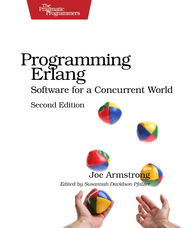For a couple decades we have been able to take a free ride on the technological advances in speed and performance of improved hardware capabilities. First there was the 386, Pentium, Pentium 4, Dual-Core Titanium 2, and on and on. If your software was a bit slow at first, just wait a few months or maybe even weeks and the next generation of hardware will become so much faster that you won't have to worry any more about possible hiccups or performance dips.
However, this is changing faster than you realize so be careful. While this does not mean that Moore's Law is no longer valid, it does mean that the software we write will need to be concurrent in order to fully exploit CPU throughput of multi-core and distributed systems.
"If you haven't done so already, now is the time to take a hard look at the design of your application, determine what operations are CPU-sensitive now or are likely to become so soon, and identify how those places could benefit from concurrency. Now is also the time for you and your team to grok concurrent programming's requirements, pitfalls, styles, and idioms.."
"A few rare classes of applications are naturally parallelizable, but most aren't. Even when you know exactly where you're CPU-bound, you may well find it difficult to figure out how to parallelize those operations; all the most reason to start thinking about it now. Implicitly parallelizing compilers can help a little, but don't expect much; they can't do nearly as good a job of parallelizing your sequential program as you could do by turning it into an explicitly parallel and threaded version..."
"Thanks to continued cache growth and probably a few more incremental straight-line control flow optimizations, the free lunch will continue a little while longer; but starting today the buffet will only be serving that one entrée and that one dessert. The filet mignon of throughput gains is still on the menu, but now it costs extra--extra development effort, extra code complexity, and extra testing effort. The good news is that for many classes of applications the extra effort will be worthwhile, because concurrency will let them fully exploit the continuing exponential gains in processor throughput...
Taken from the article The Free Lunch Is Over: A Fundamental Turn Toward Concurrency in Software by Herb Sutter.






Recent Comments
- Charles
- jpmcfarlane
- Kiffin
- jpmcfarlane
- KathleenC